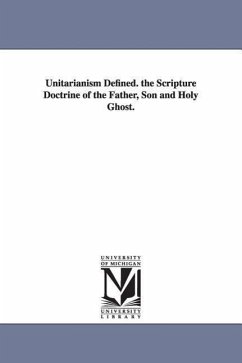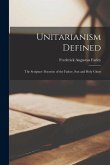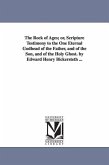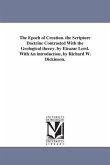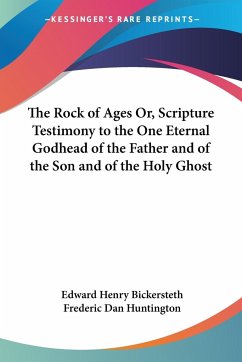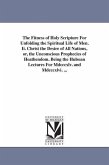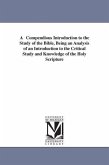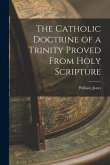This historic book may have numerous typos and missing text. Purchasers can usually download a free scanned copy of the original book (without typos) from the publisher. Not indexed. Not illustrated. 1860 edition. Excerpt: ... the form of God," that he was verily God--or that when he said he had received "a name which is above every name," he was verily the Supreme--how could he have done it better? He declares that his very "exaltation" is a reward; that his " name above every name" is a gift; that the homage he is to receive from all ranks of created beings, and the confession which is to be on their lips, are to be rendered and made to him as Lord and not as God, and expressly to or for "the glory of GOD the Father." The highest Trinitarian authorities sustain our interpretation of this often quoted passage in all particulars. For example, as to the phrase, rendered in our English version, "in the form of God," Dr. Eobinson in his Lexicon says of it, "i. e. as God, like God." As to the phrase "thought it not robbery to be equal with God," Dr. Whitby says, "did not covet to appear a God"; Bishop Sherlock--" was not fond, or tenacious of appearing as God"; Prof. Stuart--" He regarded not the being equal with God as a thing to be eagerly coveted." The last named critic says: "Our common version seems to render nugatory, or at least irrelevant, a part of the Apostle's reasoning in the passage. He is enforcing the principle of Christian humility upon the Philippians.... But how was it any proof or example of humility, that he did not think it robbery to be equal with God"? Once more, we are referred to our Lord's own words to Philip: "He that hath seen me, hath seen the Father; and how sayest thou, Show us the Father?"f Here, surely, is the highest possible and express testimony that Christ is God. To this I reply first, by a flat denial. Our Lord had no reference to the Divine Essence, but only to Divine excellences manifested in himself; to "works" which he...
Hinweis: Dieser Artikel kann nur an eine deutsche Lieferadresse ausgeliefert werden.
Hinweis: Dieser Artikel kann nur an eine deutsche Lieferadresse ausgeliefert werden.

